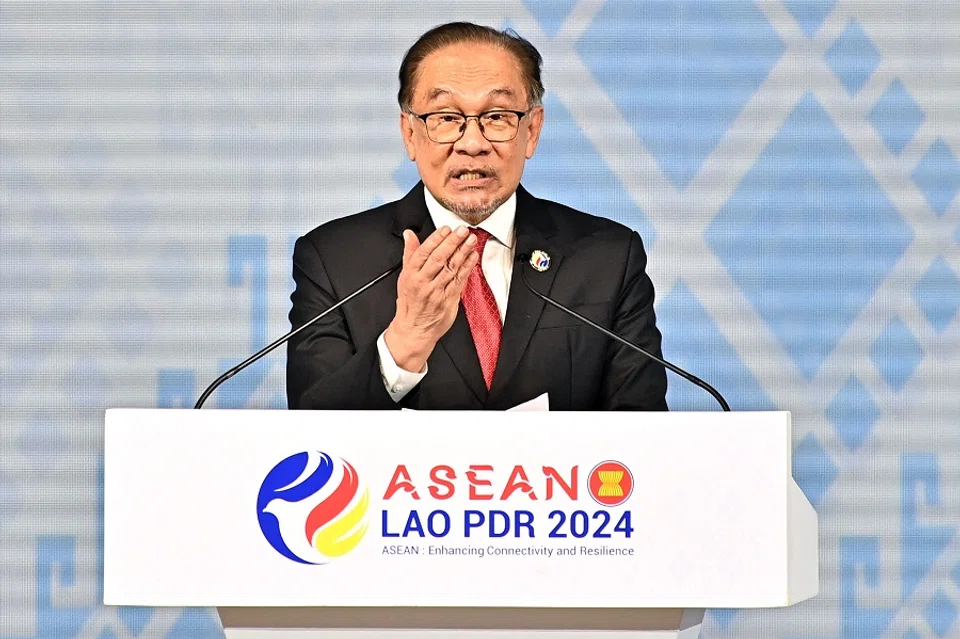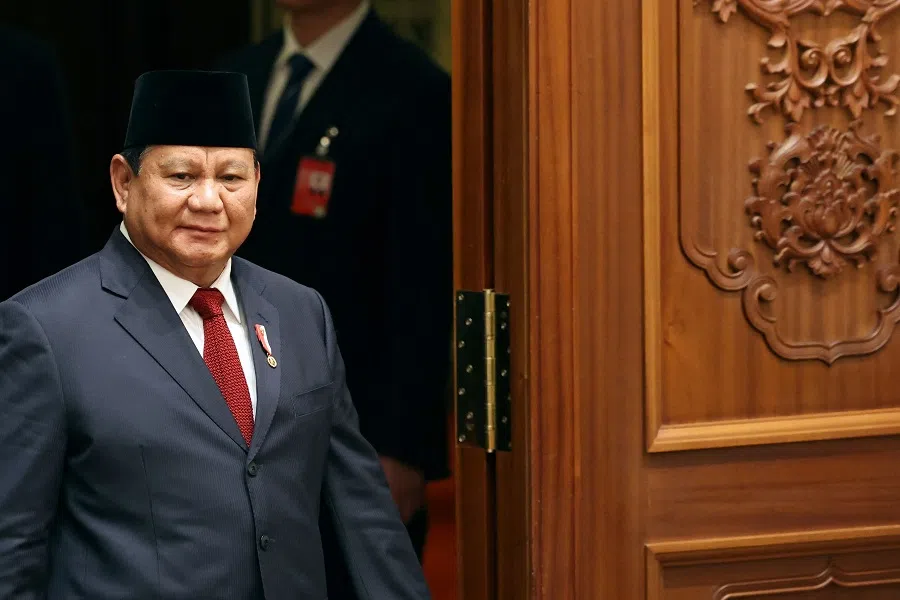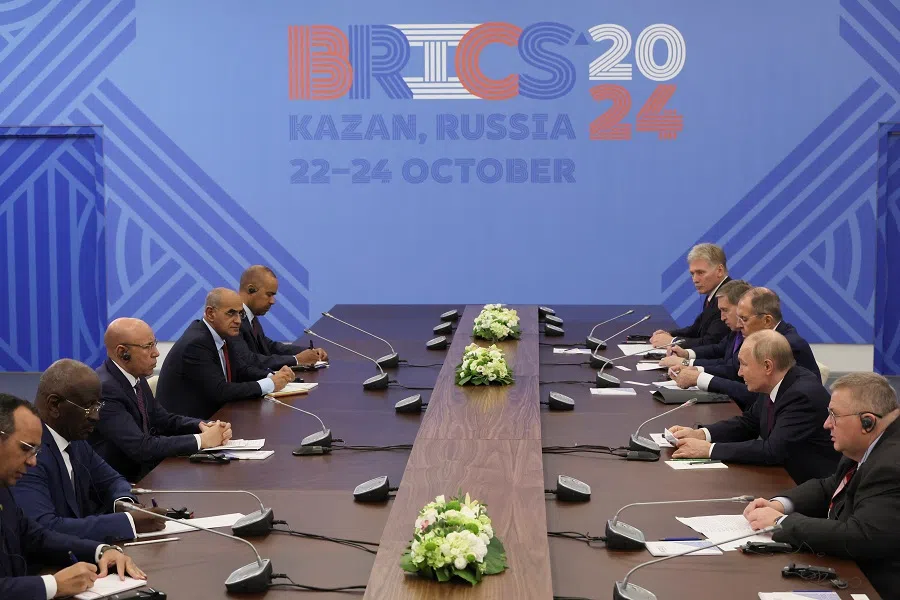The ASEAN-4’s interest in BRICS: A shift in global alliances?
Malaysian academic Benny Teh explains why Indonesia, Malaysia, Thailand and Vietnam (ASEAN-4) recently became partners of BRICS. This move is unlikely to break ASEAN apart, but the ability of BRICS to bring about the benefits it promises is not assured.

On 24 October 2024, four ASEAN countries, namely Indonesia, Malaysia, Thailand and Vietnam (ASEAN-4), joined nine countries from other parts of the world to officially become partners of BRICS.
This unique arrangement is ostensibly created to assess their readiness for membership, although the scope of engagement as partners and the modalities for full membership remain undefined.
Indonesia, Malaysia and Thailand have begun the membership process while Vietnam is reportedly taking a cautious approach. Beyond these four countries, Cambodia, Laos and Myanmar are showing interest whilst Brunei, Philippines and Singapore remain mum.
The potential of BRICS should not be underestimated. The more the G7 aims to counter China’s influence, the more China will use BRICS to push its interests and vice versa.
BRICS as a potential geopolitical rival
BRICS, in the Western eyes, is a loose non-Western economic grouping that the US does not consider to be a plausible geopolitical rival. Established in 2009, the bloc does not aim to replace the global order but to level the playing field dominated by the West.
It has, over its course, introduced several initiatives such as the BRICS Pay, the Contingent Reserve Arrangement (CRA) and the New Development Bank (NDB), to name a few. These initiatives provide alternative means to circumvent financial restrictions imposed by international regimes and are steadily attracting the attention of countries in the global south.
Even though this was never the intention of the British economist Lord Jim O’Neill when he coined the term BRIC in 2001 as a reference to the four key emerging markets (Brazil, Russia, India and China), the evolution of BRICS into a non-Western bloc that could potentially rival the G7 is in a way a reflection of the latter’s weakness to heed the long calls for needed international institutional reforms and a more inclusive world order.

The world’s second (China) and fifth (India) largest economies are not in the G7 although the latter has been invited as a guest on numerous occasions. These two economies, particularly the former, have made significant political and economic inroads in the global south. Coupled with the unshakable perception of the G7 as an old boys’ club, it would not be too difficult to understand why BRICS is gaining momentum across the developing world.
BRICS’ popularity reflects the growing dissatisfaction with the existing multilateral system.
The G7 and even the G20 have not brought about major global economic reforms. The latter has not superseded the former as some observers predicted and though the former does engage selected developing countries through their outreach sessions, it is questionable if the intention is to genuinely embrace the voices of the emerging economies or to shape and build consensus on key issues pushed by the former in the runup to the latter’s annual summits.
The potential of BRICS should not be underestimated. The more the G7 aims to counter China’s influence, the more China will use BRICS to push its interests and vice versa. Aligning with countries in the global south is arguably China’s strategy to capitalize on their discontent and position BRICS as a champion of their causes.
ASEAN-4’s interest in BRICS
The BRICS grouping’s principles of inclusivity, consensus, mutual respect, openness, solidarity and sovereign equality resonate with ASEAN’s own principles. The grouping’s emphasis on economic cooperation, sustainable development goals and developmental issues pertinent to the global south are likewise central to ASEAN countries.
... joining the bloc will open an avenue for them to partake in policymaking and reduce their dependence on, if not remake, the current international system that they find unjust at times.
The ASEAN-4 are drawn to the idea that BRICS serves as a platform for developing a multipolar world order and a channel for furthering global south interests. As Thailand’s foreign minister, Maris Sangiampongsa, declared at the 16th BRICS summit in Kazan: “Thailand believes that BRICS can be the voice of developing and emerging economies and serve as the force to shift the dynamics of financial governance in favour of all, and not just some.”
Malaysia’s economic minister, Rafizi Ramli, stated at the same summit that “as the world becomes multipolar, BRICS has become a critical counterbalance” and a solution to constraints such as “barriers to development finance [that] impede the building of vital infrastructure and a growing global debt [that] has become a chokehold to growth”.

Indonesia under its new president, Prabowo Subianto, views BRICS to be in line with its national interests on key issues such as poverty eradication, food security and human development. Vietnam’s involvement is said to reflect its commitment to multilateralism and its interest to diversify foreign relations and proactively address developmental concerns.
A stronger ASEAN and global south?
In general, the ASEAN-4’s interests in BRICS are three-pronged. Firstly, joining the bloc will open an avenue for them to partake in policymaking and reduce their dependence on, if not remake, the current international system that they find unjust at times. BRICS’ initiatives mentioned earlier, and new ones being proposed such as BRICS Clear, a cross-border settlement and depository infrastructure; a BRICS reinsurance company; and a BRICS grain exchange could aid them in working around certain impediments.
Malaysia, as the next ASEAN chair, is poised to strengthen cooperation between the two groupings.
The bloc’s focus on developing cross-border payment instruments by encouraging the use of local currencies in financial transactions is in line with ASEAN’s ongoing efforts to develop an ASEAN Local Currency Transaction Framework to boost regional payment connectivity and promote local currency transactions. Malaysia already has in place Local Currency Settlement Frameworks with Thailand and Indonesia.
Having a strong interest in BRICS is unlikely to cause ASEAN to break apart as some suggest. On the contrary, Malaysia, as the next ASEAN chair, is poised to strengthen cooperation between the two groupings.
Secondly, BRICS may help the ASEAN-4 amplify their voices on issues ranging from climate crises, poverty, debts and communicable diseases to double standards and injustices that often reverberate with other developing countries. Malaysia and Indonesia have used their inaugural presence in Kazan to highlight their frustration at the West for failing to stop the war in Gaza and Lebanon.
Moreover, Indonesia and Thailand are keen to play an active role in leading the global south. With the support of China, BRICS provides an important platform for the building of shared values, sharing of expertise and promotion of good governance.
Thirdly, BRICS may enable the ASEAN-4 to seek and enhance economic connectivity through the harmonisation of standards, knowledge transfer and infrastructure financing. The countries will be able to maintain strong economic engagement with major powers like China and India while moving beyond traditional trading partners to diversify trade and identify new markets for economic growth and sustainability. For example, new trade deals are expected to further reinforce Malaysia’s position as a semiconductor hub.
China’s leadership role is therefore pivotal to manage the differing voices and generate more substance for the bloc.
Hedging in times of uncertainty
The decision of the ASEAN-4 to engage BRICS should not be misconstrued as taking sides. As non-aligned countries with independent foreign policies, they have an equal prospect of joining BRICS as they would with any Western-led frameworks. All four are also members of the US-led Indo-Pacific Economic Framework for Prosperity (IPEF).

Their behaviour reflects an effort to mitigate security risks associated with an uncertain strategic environment. They hedge to navigate the tumultuous waters of great power rivalry in addressing structural vulnerabilities, optimising economic gains and improving regime legitimacy at home.
In anticipation of a worsening trade war between the US and China when Donald Trump returns to power, BRICS may well be a good bet for smaller countries that are heavily invested in an open economy.
Economic diplomacy hence underscores this new interest in BRICS. As Prime Minister Anwar Ibrahim explained in his recent lecture titled “Towards a Rising Global South: Leveraging on Malaysia-India Ties” that Malaysia’s aim is to “diversify our economic diplomacy efforts and enhance our collaboration with member countries through shared initiatives and strategic partnerships”.
This apparent shift away from the West should be a wake-up call for the US and its Western allies to take the legitimate concerns of emerging countries more earnestly. Throwing them a bone to silence their disquiet is increasingly insufficient when BRICS appears to be offering more.
Granted, BRICS has its own challenges. The effectiveness of its initiatives remains to be seen. Further expansion of its membership to include diverse interests might lend credence to the founding leaders’ reputation in the global South but at the same time make decision-making extremely difficult due to the consensus principle.
China’s leadership role is therefore pivotal to manage the differing voices and generate more substance for the bloc.

![[Big read] Paying for pleasure: Chinese women indulge in handsome male hosts](https://cassette.sphdigital.com.sg/image/thinkchina/c2cf352c4d2ed7e9531e3525a2bd965a52dc4e85ccc026bc16515baab02389ab)



